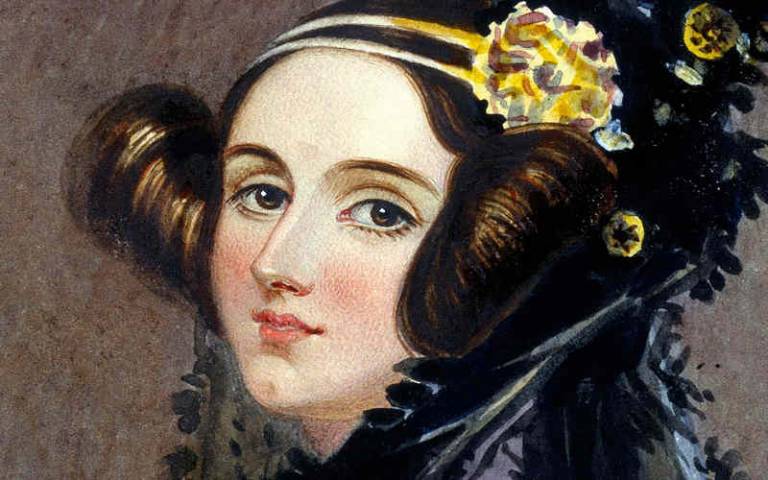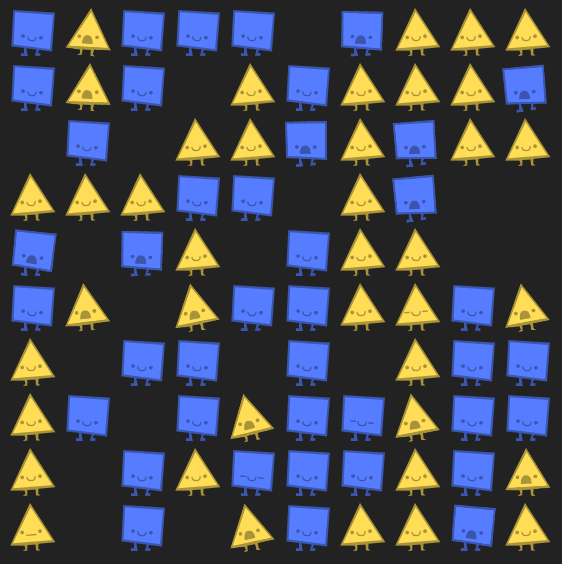Here’s some of the latest mathematical news and goings-on from the month of November.
You're reading: Posts Tagged: diversity
Wikithon for diversity in mathematics

Next Tuesday, October 8th, UCL Mathematics is hosting a Wikithon in celebration of Ada Lovelace Day from 5-7pm. The theme is Diversity in Mathematics, and the aim is to write Wikipedia articles about mathematicians from under-represented groups. The session will be led by Dr Jess Wade BEM (Imperial College, Physics) and Dr Alice White (Wellcome Trust).
Jess Wade was appointed BEM earlier this year for services to Gender Diversity in Science.
If you want to participate, you are asked to bring a laptop – pizza will be provided. You are asked to register (for free) for catering reasons.
One Mathematically Gifted and Black person every day this Black History Month

February is Black History Month in the USA, so the website Mathematically Gifted and Black is honouring a different black mathematician each day in February, for the third year.
Wikiquote edit-a-thon – Saturday, May 12th, 2018
TL;DR: We’re holding a distributed Wikipedia edit-a-thon on Saturday, May 12th, 2018 from 10am to improve the visibility of women mathematicians on the Wikiquotes Mathematics page. Join in from wherever you are! Details below, and in this Google Doc.
Extension and abstraction without apparent direction or purpose is fundamental to the discipline. Applicability is not the reason we work, and plenty that is not applicable contributes to the beauty and magnificence of our subject.
– Peter Rowlett, “The unplanned impact of mathematics”, Nature 475, 2011, pp. 166-169.Trying to solve real-world problems, researchers often discover that the tools they need were developed years, decades or even centuries earlier by mathematicians with no prospect of, or care for, applicability.
– Peter Rowlett, “The unplanned impact of mathematics”, Nature 475, 2011, pp. 166-169.There is no way to guarantee in advance what pure mathematics will later find application. We can only let the process of curiosity and abstraction take place, let mathematicians obsessively take results to their logical extremes, leaving relevance far behind, and wait to see which topics turn out to be extremely useful. If not, when the challenges of the future arrive, we won’t have the right piece of seemingly pointless mathematics to hand.
Peter Rowlett, “The unplanned impact of mathematics”, Nature 475, 2011, pp. 166-169.
Now, don’t get me wrong. I have every admiration for Peter and his work; his is a thoughtful voice of reason, and it’s not at all unreasonable for the Wikiquote page on mathematics to cite his writing.
Not mentioned on The Aperiodical, March 2016
There’s been a lot of maths news this month, but we’ve all been too busy to keep up with it. So, in case you missed anything, here’s a summary of the biggest stories this month. We’ve got two new facts about primes, the best way of packing spheres in lots of dimensions, and the ongoing debate about the place of maths in society, as well as the place of society in maths.
A surprisingly simple pattern in the primes
Kannan Soundararajan and Robert Lemke Oliver have noticed that the last digits of adjacent prime numbers aren’t uniformly distributed – if one prime ends in a 1, for example, the next prime number is less likely to end in a 1 than another odd digit. Top maths journos Evelyn Lamb and Erica Klarreich have both written very accessible pieces about this, in the Nature blog and Quanta magazine, respectively.
Oliver and Soundararajan’s paper on the discovery is titled “Unexpected biases in the distribution of consecutive primes”.
Not mentioned on The Aperiodical this week, 18th September 2015
Gender inclusivity in mathematics at Harvard
Some mathematicians at Harvard have formed an organisation called “Gender inclusivity in mathematics”, which is dedicated to “creating a community of mathematicians particularly welcoming to women interested in math and reducing the gender gap in Harvard’s math department.”
They’re running a series of talks by invited speakers and discussion events, and hope to run a conference on women in mathematics this academic year.
More information: Gender inclusivity in mathematics at Harvard
via Nalini Joshi on Twitter
National Numeracy Family Maths Toolkit
The National Numeracy campaign, a British charity aiming to improve numeracy in adults as well as children, has relaunched its Parent Toolkit as the Family Maths Toolkit. It contains advice for parents on promoting good attitudes towards maths, as well as ideas for activities to get the whole family enthused and practised in maths. There’s also a section with information to help school teachers support parental engagement with maths.
Visit: Family Maths Toolkit
Pixar in a Box
Khan Academy has partnered with Pixar to produce a subsection of their site which explains some of the maths involved in computer animation. There are the usual videos explaining individual topics, but also plenty of interactive diagrams so you can play along at home. It’s also nice to see some “Get to know …” videos, which present real animators who work at Pixar, talking about why they got into computer animation.
Visit: Pixar in a Box, at Khan Academy
The Other Half – Parable of the Polygons
Anna Haensch and Annie Rorem are the hosts of a new podcast, The Other Half. This is the second of two posts based on the first episode, about racism and segregation.
In the first part of episode one, we use the Racial Dot Map to get a sense of what race looks like in our country. And while it certainly gives us a picture of the stark racial lines segregating in our communities, it doesn’t necessarily help us understand how we got to be this way, and perhaps
more relevant, how we can fix this. In the second part of episode one we look at Parable of the Polygons, a playable blog post by Vi Hart and Nicky Case, to help us understand these slightly more nuanced questions.
